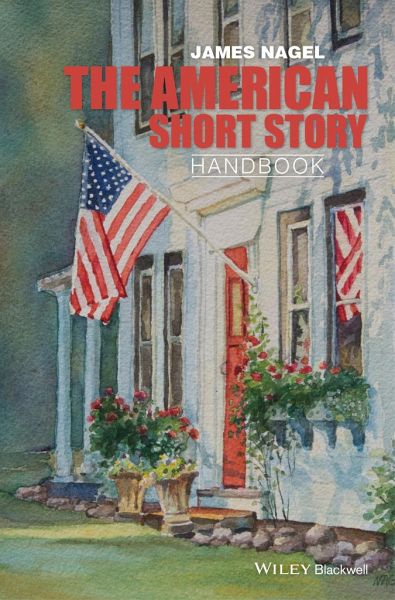
The American Short Story Handbook
Versandkostenfrei!
Versandfertig in 2-4 Wochen
50,99 €
inkl. MwSt.

PAYBACK Punkte
25 °P sammeln!
This is a concise yet comprehensive treatment of the American short story that includes an historical overview of the topic as well as discussion of notable American authors and individual stories, from Benjamin Franklin's "The Speech of Miss Polly Baker" in 1747 to "The Joy Luck Club".Includes a selection of writers chosen not only for their contributions of individual stories but for bodies of work that advanced the boundaries of short fiction, including Washington Irving, Sarah Orne Jewett, Stephen Crane, Jamaica Kincaid, and Tim O'BrienAddresses the ways in which American oral storytelling...
This is a concise yet comprehensive treatment of the American short story that includes an historical overview of the topic as well as discussion of notable American authors and individual stories, from Benjamin Franklin's "The Speech of Miss Polly Baker" in 1747 to "The Joy Luck Club".
Includes a selection of writers chosen not only for their contributions of individual stories but for bodies of work that advanced the boundaries of short fiction, including Washington Irving, Sarah Orne Jewett, Stephen Crane, Jamaica Kincaid, and Tim O'Brien
Addresses the ways in which American oral storytelling and other narrative traditions were integral to the formation and flourishing of the short story genre
Written in accessible and engaging prose for students at all levels by a renowned literary scholar to illuminate an important genre that has received short shrift in scholarly literature of the last century
Includes a glossary defining the most common terms used in literary history and in critical discussions of fiction, and a bibliography of works for further study
Includes a selection of writers chosen not only for their contributions of individual stories but for bodies of work that advanced the boundaries of short fiction, including Washington Irving, Sarah Orne Jewett, Stephen Crane, Jamaica Kincaid, and Tim O'Brien
Addresses the ways in which American oral storytelling and other narrative traditions were integral to the formation and flourishing of the short story genre
Written in accessible and engaging prose for students at all levels by a renowned literary scholar to illuminate an important genre that has received short shrift in scholarly literature of the last century
Includes a glossary defining the most common terms used in literary history and in critical discussions of fiction, and a bibliography of works for further study


